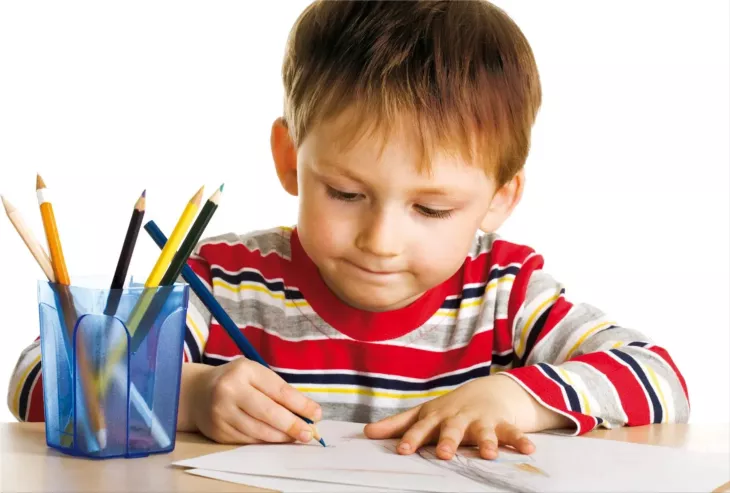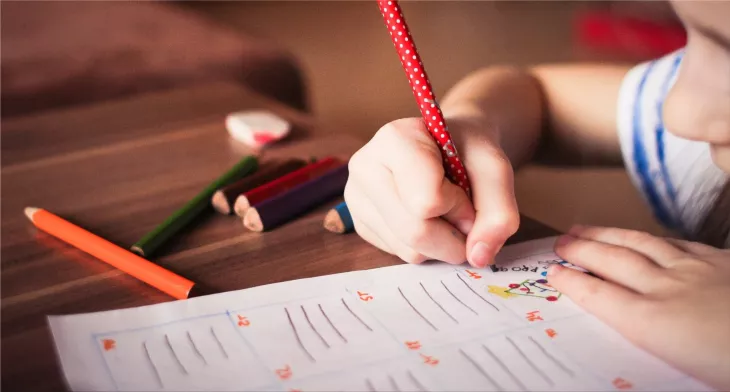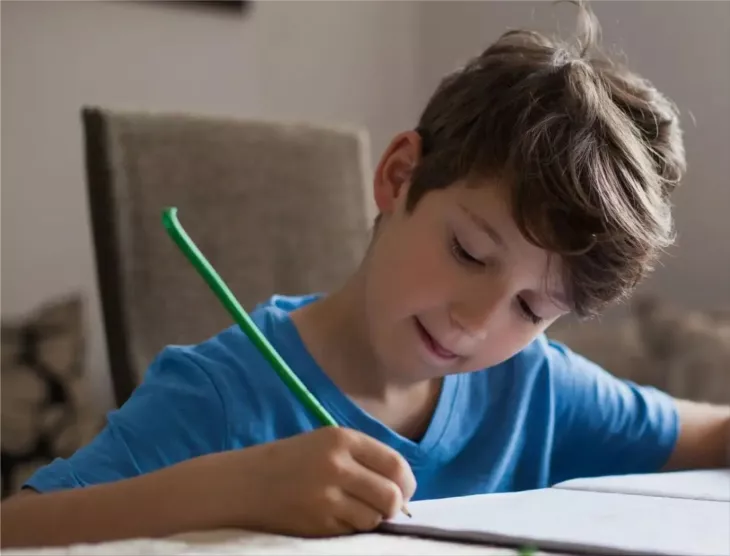When we emphasize our children's learning process rather than their ultimate output, we may make efforts to assist them in overcoming obstacles.
We place a premium on goods or completing tasks in our daily lives. Job execution is highly regarded, whether it be housework, schoolwork, or getting there on time. An immediate sense of satisfaction and relief can be crossed off the list. As a parent, teacher, or child, each obstacle overcome may provide a sense of pride.
Numerous parents use checklists, prizes, and punishments to motivate their children to complete tasks. This is a systematic method, and it may reflect how individuals assist themselves in meeting their obligations. However, youngsters are maturing in growth and capacity to accomplish tasks. For example, learning to clothe oneself, ride a bike, or read requires several steps. Concentrating only on completing work may cause one to overlook an impediment to the process. Therefore, moving the emphasis away from the result or outcome is critical and onto the more minor phases or cycle.
Four lenses may be used to illuminate areas where process issues may be obstructing progress. Once recognized, it becomes easy for you to connect with your kid and encourage them so that they may develop their foundation for success while experiencing your support! These four lenses examine health, sensory/sensation, the coordination of sensation and movement, and emotions/feelings/memories and cognition. To show how each of these factors contributes, consider what it takes to learn to read.
Health
To begin, we examine the health. Feeling capable is critical when confronted with a difficult task. We do not operate properly when weary, ill, or hungry. Obscure health limitations may be more challenging to detect. These disorders may include allergies, digestive problems, or other chronic health problems. When one's physical capabilities are impaired, even minor obstacles may seem overwhelming. It is improbable that you will learn anything new during this time.
Sensory abilities, as well as synchronization of sensation and movement
Following that, let us examine the sensory-motor system. A youngster must first see letters and then hear sounds to learn to read. Vision and hearing screening are included in early screenings to treat these issues and remove these barriers. Apart from monitoring the functioning of these senses, some youngsters may get overwhelmed or inundated by feelings. The sensations of sound, smell, touch, taste, and sight can be overwhelming. Alternatively, certain feelings may require a higher level of arousal to register. Additionally, coordination between sensations and their information is needed to facilitate movement and activity.
Consider the streams of sensory information involved in separating letters from the backdrop page, identifying them based on their shape to construct words, and lastly, tracking sentences with eyes moving over a page of type. All of these mechanisms work in the background to promote reading. Sensory problems become apparent only when you observe your kid's response to sensations and ask questions such as, "What is happening in the environment when my child is not paying attention, is disconnecting, or is quickly frustrated?" Similar difficulties might arise during more busy periods that require synchronization of sense and movement. For some youngsters, the noise and bustle of the playground or the incidental contact during a game of tag might be overpowering, causing them to appear disoriented.
Emotions
The next lens to examine is the domain of emotions. Transitioning from pleasure and delight to focusing on education is a challenging step. We frequently encounter this resistance ourselves when we are forced to quit doing something we like to pick up our children from school, fill up our car with gas, or submit our taxes. This is the change that youngsters must master when confronted with schoolwork or chores. Confident children find this more difficult than others. Yet, this skill is critical for meeting life's numerous demands once acquired. Growing up entails discovering what triggers their emotions, what they imply, and how to regulate them.
The issue here is, "How emotional is my child in response to the challenge?" Curiosity about your child's feelings might uncover challenges on the playground or in the classroom. Using reading as an example, children are frequently vividly aware of their reading ability compared to their peers. If reading is difficult for your kid, they may experience sadness, embarrassment, anxiety, frustration, or rage, making reading more problematic. Without an interest in your child's feelings, you may overlook their conduct's social or academic issues, leaving them to battle alone.
Purposeful action
Finally, your kid may struggle with effort management: slowing down when necessary, starting up, changing their focus, and organizing themselves. This demands the capacity to maintain an active and focused state of mind. This capacity develops over time when youngsters learn to control their desires to respect "no" and obey rules. For example, taking toys out, playing with them, and putting them away teaches children to sequence their actions. In addition, as youngsters develop and their brains mature, they begin to connect cause and effect, enabling them to learn to defer gratification in exchange for a future reward.
After considering the other three potential causes of difficulty, health, sensory, and emotional, you may shift your focus to this area. Numerous questions can be viewed here: "Does my child struggle with basic routines?" Is it possible for my child to become disoriented when putting on their shoes? Does my child forget to refrigerate the milk? Is it difficult for my child to move from one activity to the next?" When your child struggles with concentration, attention, short-term memory, or continuous effort, it might be difficult for them to finish a job. As a result, individuals have difficulty fitting the pieces together to go from easy to more complicated activities.
Recap
We are mysterious beings. Numerous components must come together to support the ability to do tasks. This is where checklists designed to achieve a specific end or product may encounter challenges. When a child resists or has difficulties completing a job, it is appropriate to take a step back and get interested in what is happening. The youngster must possess the necessary skill to do a task, which is frequently overlooked. As with teaching the ABCs, several phases are involved in learning to put words together and eventually sentences to read.
The shift in focus from product (completing a task) to process is powerful! For whatever reason, your youngster is refusing. When the components that underpin invulnerable conduct are considered, several dimensions and chances for assistance become apparent. It becomes simpler to extend grace and support when problematic behaviors occur when we keep this in mind. When the four different lenses are considered, possibilities to align with your kid on their road to accomplishment become apparent!























